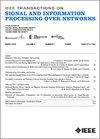非凸惩罚分位数回归的联邦平滑近端梯度
IF 3
3区 计算机科学
Q2 ENGINEERING, ELECTRICAL & ELECTRONIC
IEEE Transactions on Signal and Information Processing over Networks
Pub Date : 2025-07-10
DOI:10.1109/TSIPN.2025.3587440
引用次数: 0
摘要
物联网(IoT)系统的兴起导致在分布式边缘设备上生成大量高维数据,通常需要稀疏建模技术来有效地管理模型复杂性。在这些环境中,分位数回归通过捕获条件分布行为,为基于均值的模型提供了一个强大的替代方案,这在重尾噪声或异构数据下特别有用。然而,由于分位数损失的非光滑性质以及用于稀疏性的非凸、非光滑惩罚(如MCP和SCAD),联邦学习(FL)中的惩罚分位数回归仍然具有挑战性。为了解决这一差距,我们提出了联邦平滑近端梯度(FSPG)算法,该算法将平滑技术集成到近端梯度框架中,从而在分散设置中实现有效、稳定和理论上有保证的优化。FSPG算法保证了目标函数的单调化,收敛速度比现有方法快。我们进一步扩展了FSPG来处理部分客户端参与(PCP-FSPG),通过基于客户端活动自适应更新本地参数,使算法对间歇节点可用性具有鲁棒性。大量的实验证实,与现有基线相比,FSPG和PCP-FSPG实现了更高的精度、收敛行为和可变选择性能,展示了它们在现实世界联邦应用中的实际效用。本文章由计算机程序翻译,如有差异,请以英文原文为准。
Federated Smoothing Proximal Gradient for Quantile Regression With Non-Convex Penalties
The rise of internet-of-things (IoT) systems has led to the generation of vast and high-dimensional data across distributed edge devices, often requiring sparse modeling techniques to manage model complexity efficiently. In these environments, quantile regression offers a robust alternative to mean-based models by capturing conditional distributional behavior, which is particularly useful under heavy-tailed noise or heterogeneous data. However, penalized quantile regression in federated learning (FL) remains challenging due to the non-smooth nature of the quantile loss and the non-convex, non-smooth penalties such as MCP and SCAD used for sparsity. To address this gap, we propose the Federated Smoothing Proximal Gradient (FSPG) algorithm, which integrates a smoothing technique into the proximal gradient framework to enable effective, stable, and theoretically guaranteed optimization in decentralized settings. FSPG guarantees monotonic reduction in the objective function and achieves faster convergence than existing methods. We further extend FSPG to handle partial client participation (PCP-FSPG), making the algorithm robust to intermittent node availability by adaptively updating local parameters based on client activity. Extensive experiments validate that FSPG and PCP-FSPG achieve superior accuracy, convergence behavior, and variable selection performance compared to existing baselines, demonstrating their practical utility in real-world federated applications.
求助全文
通过发布文献求助,成功后即可免费获取论文全文。
去求助
来源期刊

IEEE Transactions on Signal and Information Processing over Networks
Computer Science-Computer Networks and Communications
CiteScore
5.80
自引率
12.50%
发文量
56
期刊介绍:
The IEEE Transactions on Signal and Information Processing over Networks publishes high-quality papers that extend the classical notions of processing of signals defined over vector spaces (e.g. time and space) to processing of signals and information (data) defined over networks, potentially dynamically varying. In signal processing over networks, the topology of the network may define structural relationships in the data, or may constrain processing of the data. Topics include distributed algorithms for filtering, detection, estimation, adaptation and learning, model selection, data fusion, and diffusion or evolution of information over such networks, and applications of distributed signal processing.
 求助内容:
求助内容: 应助结果提醒方式:
应助结果提醒方式:


